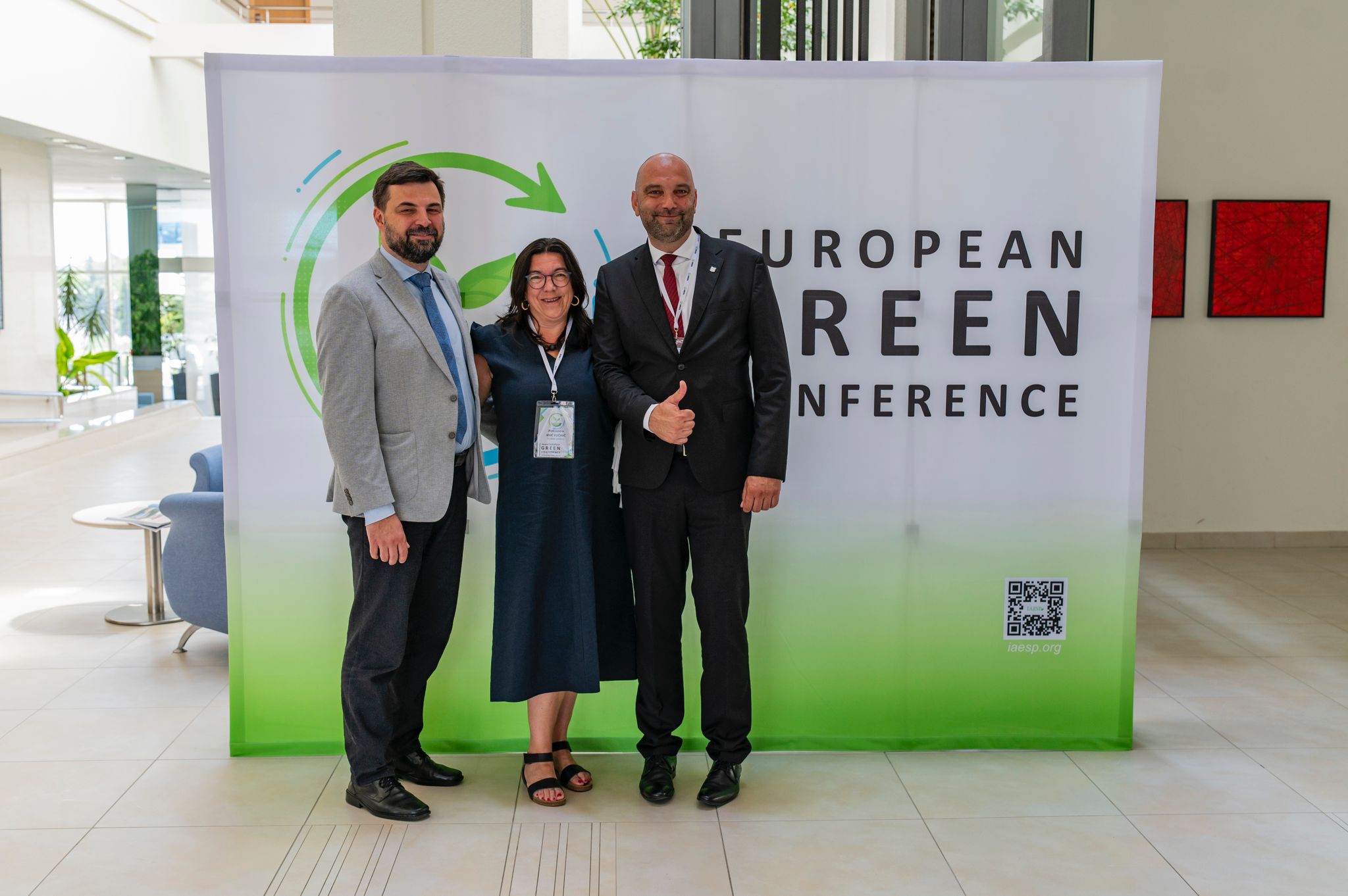2nd European Green Conference


VODICE – On 12 June 2024, the Second European GREEN Conference was officially opened in Vodice, organised by the Josip Juraj Strossmayer Water Institute and the International Association of Environmental Scientists and Professionals (IAESP) with the support of partner institutions and under the patronage of the Government of the Republic of Croatia. The conference brings together scientists and experts from various scientific fields who emphasise the need for a multidisciplinary approach to environmental protection, mitigating the climate crisis and achieving the UN Sustainable Development Goals (SDGs) and the objectives of the European Green Deal. Almost 500 authors and co-authors from 10 countries accepted the invitation of the organising committee to participate in the conference and presented 102 scientific and technical papers in the form of lectures or posters.
Professor Dr Mirna Habuda-Stanić, the initiator and chair of last year’s organising committee of the European GREEN Conference, addressed the participants and expressed her satisfaction that the European GREEN Conference is taking place again this year with great interest from the scientific and professional community: “The number of papers submitted and participants this year confirms the relevance of the aim of the conference, which is to contribute to a multidisciplinary approach to environmental protection and to the achievement of the European Green Deal and the UN Sustainable Development Goals.”
The Chairman of the EGC 2024 Organising Committee, Professor Dr Mario Šiljeg, director of the Josip Juraj Strossmayer Water Institute, emphasised that Croatia is one of the three EU countries that suffer the most from the consequences of climate change. He pointed out that the Institute of Water, as the national body responsible for water monitoring, is expanding its capacity for the timely detection of these consequences, such as salinity, eutrophication of water and increasingly frequent turbidity due to extreme weather conditions: “Accurate and timely data on the observed trends in water quality, which are a result of climate change, will help water service providers in more efficient planning and selection of technological solutions in drinking water treatment processes, as well as in climate change adaptation measures for all stakeholders in the water management system.”
The general sponsor of the conference is the Fund for Environmental Protection and Energy Efficiency. The Deputy director of the Fund, MS Mirko Budiša, explained that the Fund has been dedicated exclusively to “green” issues for 20 years, which have evolved over time with new content, but the goal has always remained the same – to help citizens, businesses and local governments choose more sustainable practises and establish greener habits: “There is still a lot of work ahead of us, much of which has to do with changing our lifestyles. Therefore, we must not neglect the communication aspect, and I believe that much of what we hear today will be excellent content for further sensitising the public to these issues.”
The conference was officially opened by the envoy of the Prime Minister of the Republic of Croatia, MS Andrej Plenković, and the Minister of Environmental Protection and Green Transition, MS Marija Vučković, MS Elizabeta Kos, director of the Directorate for Water Management and Marine Protection at the Ministry of Environmental Protection and Green Transition. She recalled that the European Green Deal has triggered numerous bold changes and initiatives that have led to the adoption of new directives with stricter requirements for the protection of the environment, water, nature and soil. She emphasised that although Croatia is rich in water resources (according to EUROSTAT data, we rank first in the European Union with an average of 30,000 m³ of water per capita), it is aware of the fragility of this resource and is making dedicated efforts to protect it, primarily through the building of wastewater collection and treatment systems and the further expansion of connections to public water supply systems. “A total of 60 water and municipal projects with a total value of 3.5 billion euros including VAT were approved under the OPKK. All available funds have been used for the implementation of water and municipal projects (106.32% of the allocation has been realised so far). The OPKK 2014-2020 will provide an additional 300,000 inhabitants with an improved public water supply and 800,000 inhabitants with an improved wastewater system.”